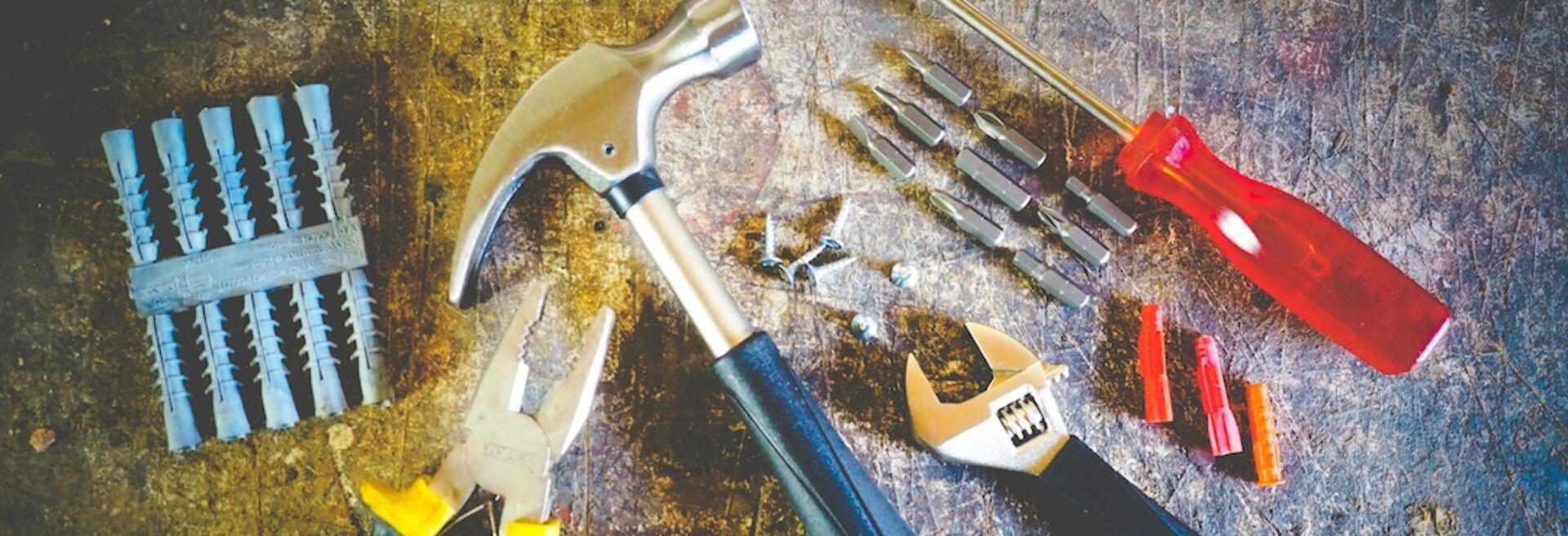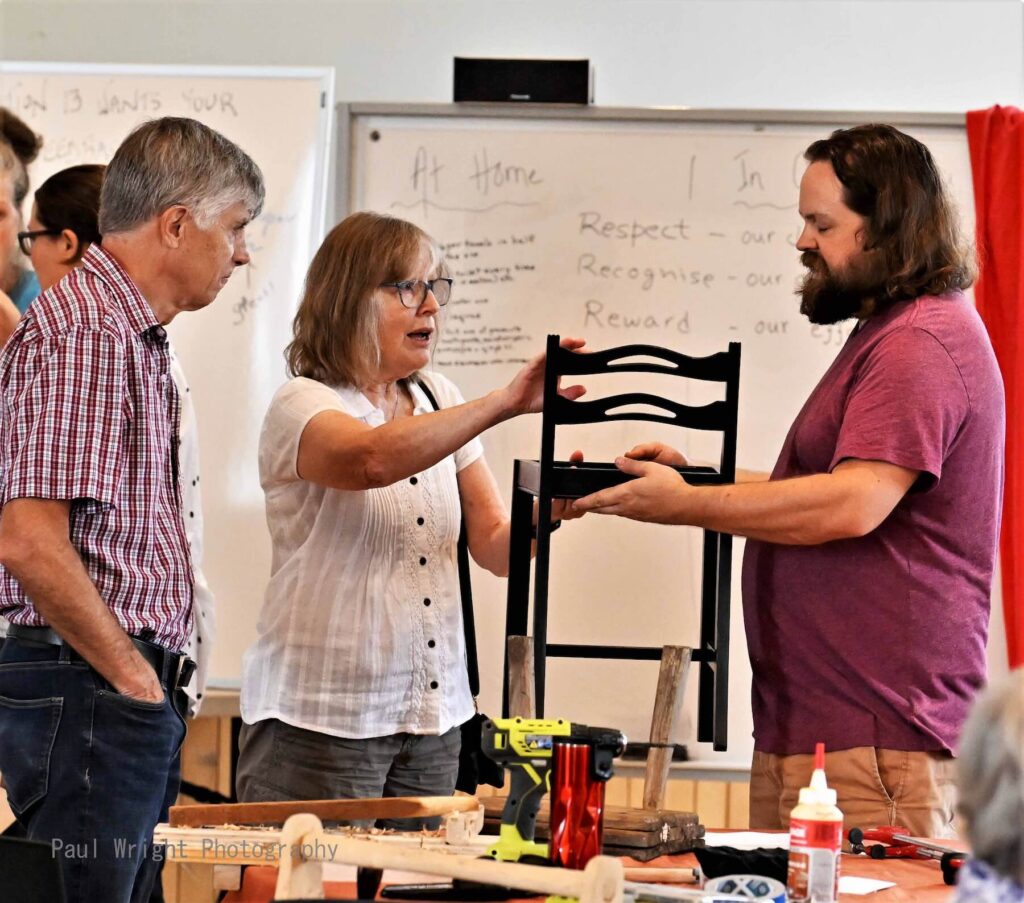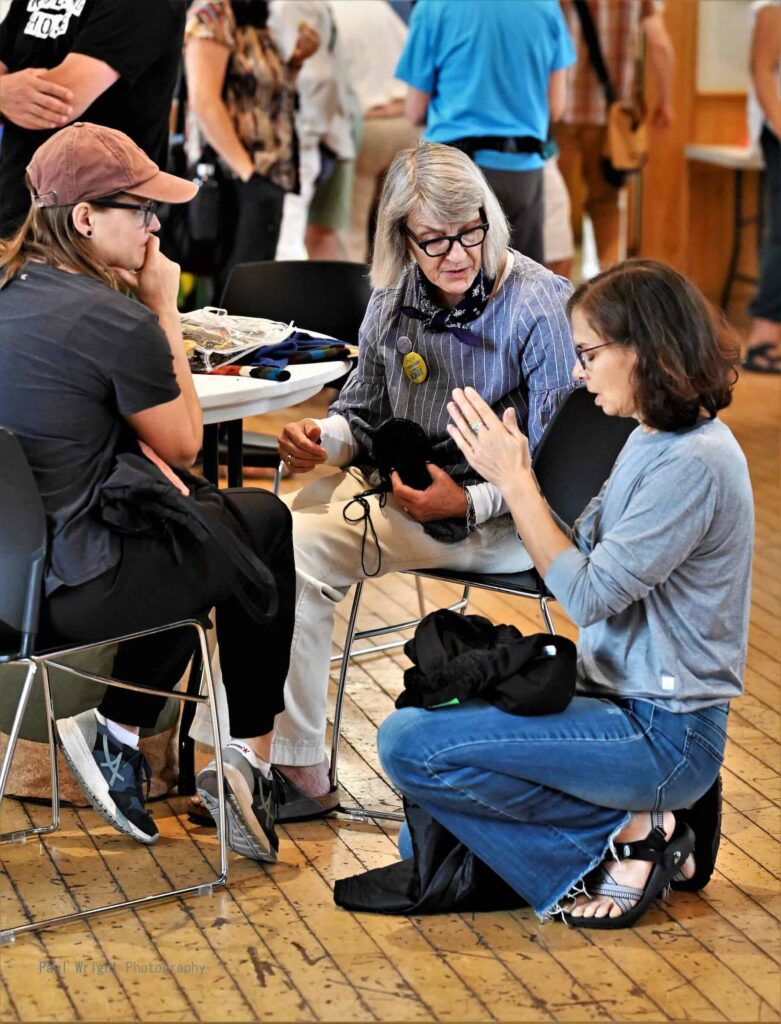These cafés serve fix-it help for broken household items

Volunteer-run repair cafés tackle our throwaway culture by taking goods destined for the landfill and giving them new life. They are even teaching people how to fix their own stuff.
A few years ago, thanks to my eclectic Instagram account, I was approached by Green Venture about becoming a volunteer mender for one of Hamilton’s first-ever repair cafés. I spent a pleasant afternoon at Green Venture’s eco-house, and in that time I fixed a purse, a dog leash and a small table lamp. I was happy to see Hamilton join a movement that had been spreading around the world.
Repair cafés started in Amsterdam in 2009, where people could bring damaged or broken items to get repaired for free by volunteers. In a world of throwaway culture where it’s so much easier to just buy something new, repair cafés have always pushed back against the waste and pollution that seem to be built into our way of life.
Green Venture only occasionally holds repair cafés these days, and a handful of other organizations hold them on a one-off basis, including the Hamilton Public Library and the Burlington Repair Café, but the group that seems to have taken the idea and run with it is Action 13 in Dundas.
“The repair cafés were started last December, and run every other month, except in the summer,” says Lindsay Knight-Pfiffer, a volunteer with Action 13.
They’re held in the second floor of the old Dundas town hall, which Knight-Pfiffer describes as having “gorgeous light. Huge soaring windows, nice wood floors, and just a really great atmosphere.”
Every two months or so a crew of volunteers gather to help people with their broken or damaged household items.

Photos: Paul Wright Photography/Action 13
“We have general fixers who can do small electronics and lamps, and a random assortment of things like portable stereos and coffee makers,” explains Knight-Pfiffer.
“The last one we had blade sharpeners who were busy the whole time, and we also have jewelry repair and sewers and menders for clothes.
“We also had a really popular station where people could ‘detail their sweaters’ and use little shavers to remove all the pill from their sweaters.”
The goal is to keep as much out of the landfill as possible. In fact at the last event, there were 75 items brought in, and only seven or eight that could not be fixed. Overall, the repair cafés have kept 225 items from being thrown away.
Repair cafés are a virtuous circle that help people to live more lightly on the earth.
Unfortunately, some manufacturers will engineer their products so they break after a certain period of time and are then difficult or impossible to repair, in a system called planned obsolescence.
“There are a whole bunch of issues around the design of things for obsolescence,” says Knight-Pfiffer. “Often items have proprietary parts you can’t get or you can’t even open the item to repair it in the first place.”
It turns out that the international Repair Café organization has been working through these issues, trying to make it easier for people to repair their belongings. In the United States and Europe, a number of jurisdictions have passed right-to-repair laws, that ensure that goods can be fixed instead of being thrown away. A similar law was proposed in Ontario in 2019 but failed to pass when the government didn’t support it.

Back in Dundas, Action 13 goes a step beyond just repairing goods, and will teach attendees how to fix their broken items themselves.
“People are so cavalier about buying a new thing when something breaks,” says Knight-Pfiffer. “One of the main focuses is to encourage the lost art of mending. We try to get people to learn how to repair items themselves. If they’re interested the menders will show them what to do.”
All of this is with an eye to creating a culture of sustainability. Action 13 has plans for ever greater steps in this direction, with a planned series of events next year including events with the repair café as the focal point, but which also have classes on growing your own food and tips on waste reduction.
In the end, repairing vs. replacing is one of the best ways you can fight back against pollution and the overuse of our dwindling natural resources. And Oct. 19 is international repair day!
It’s great to have Action13 in Dundas and others making that process easier for all of us.












